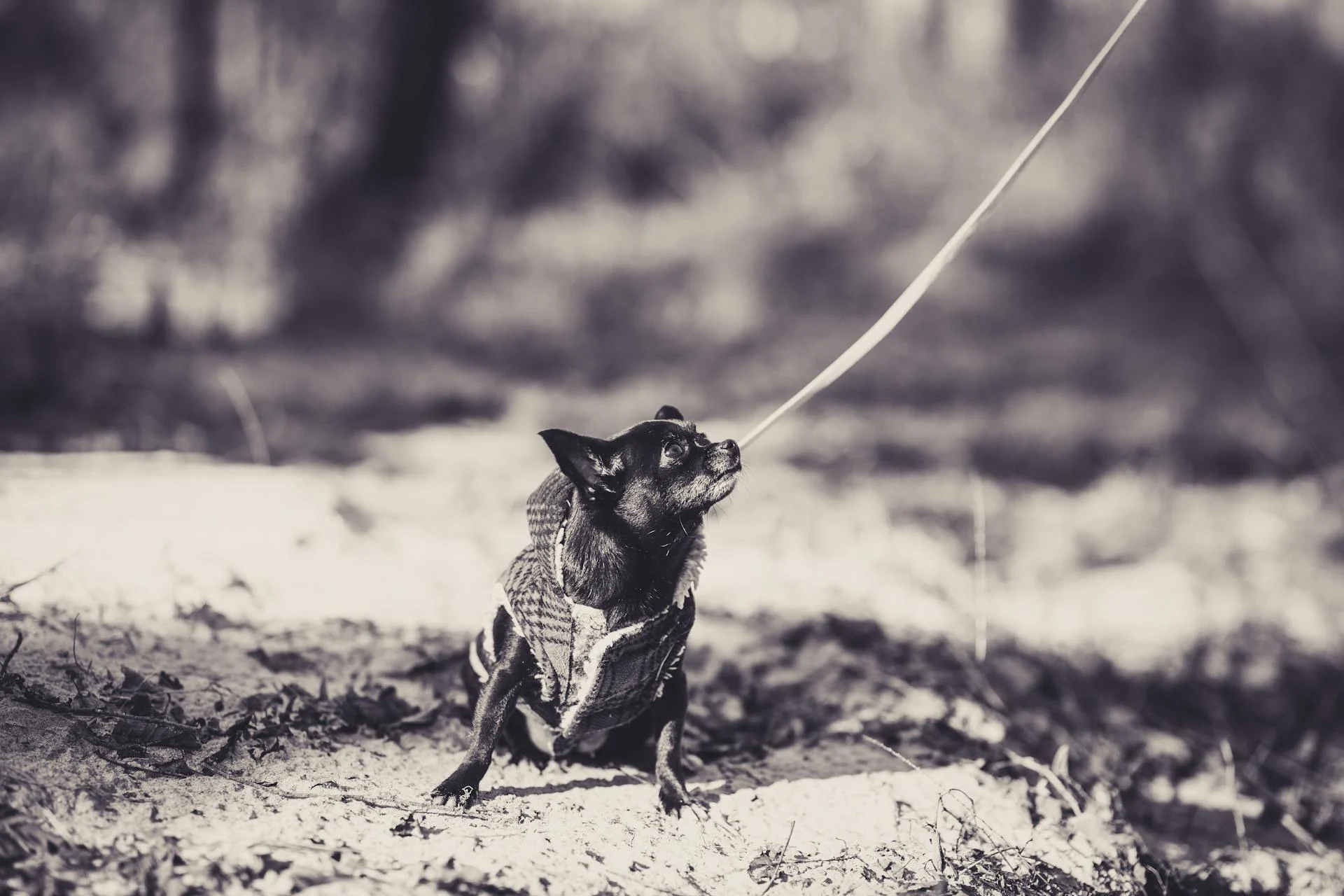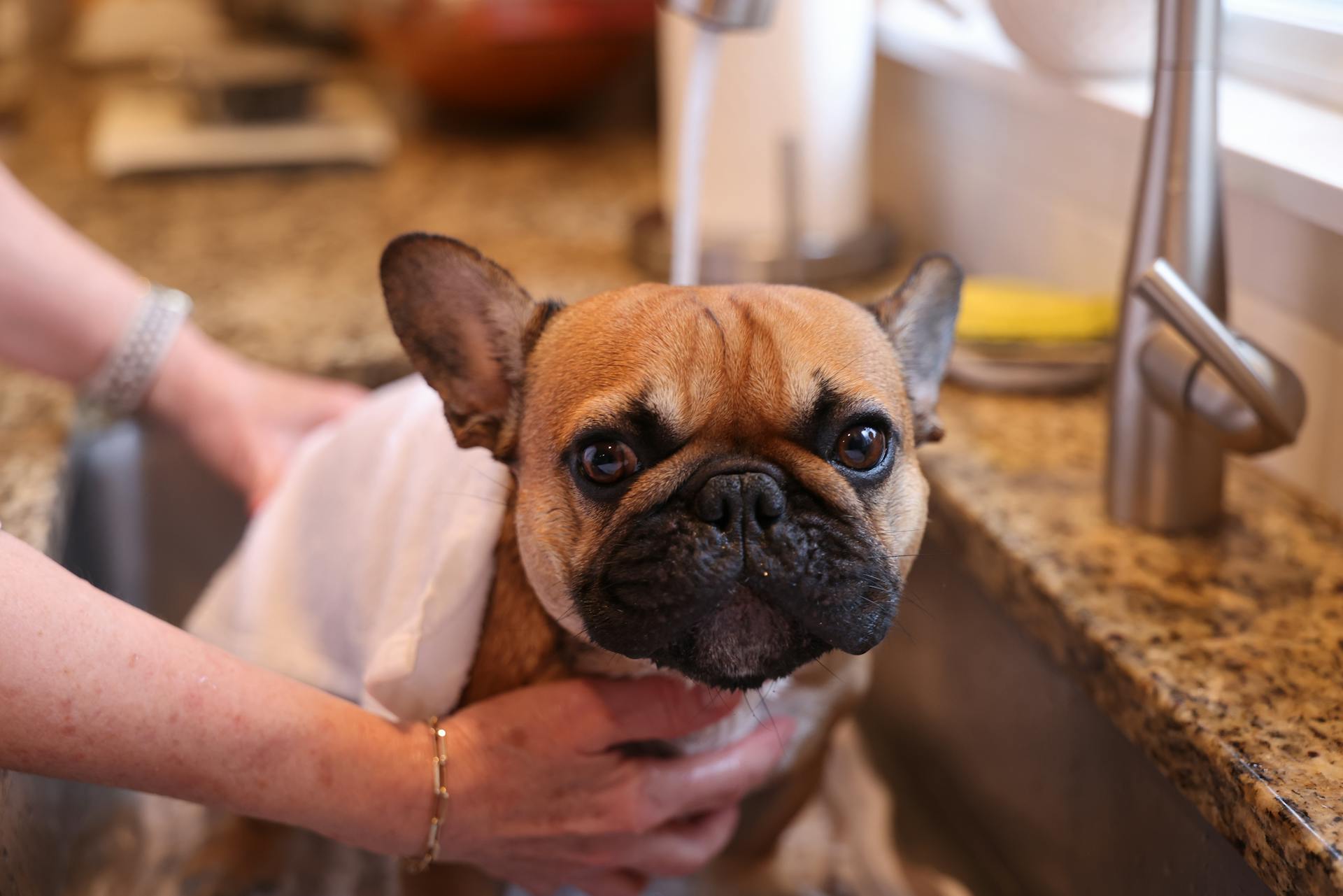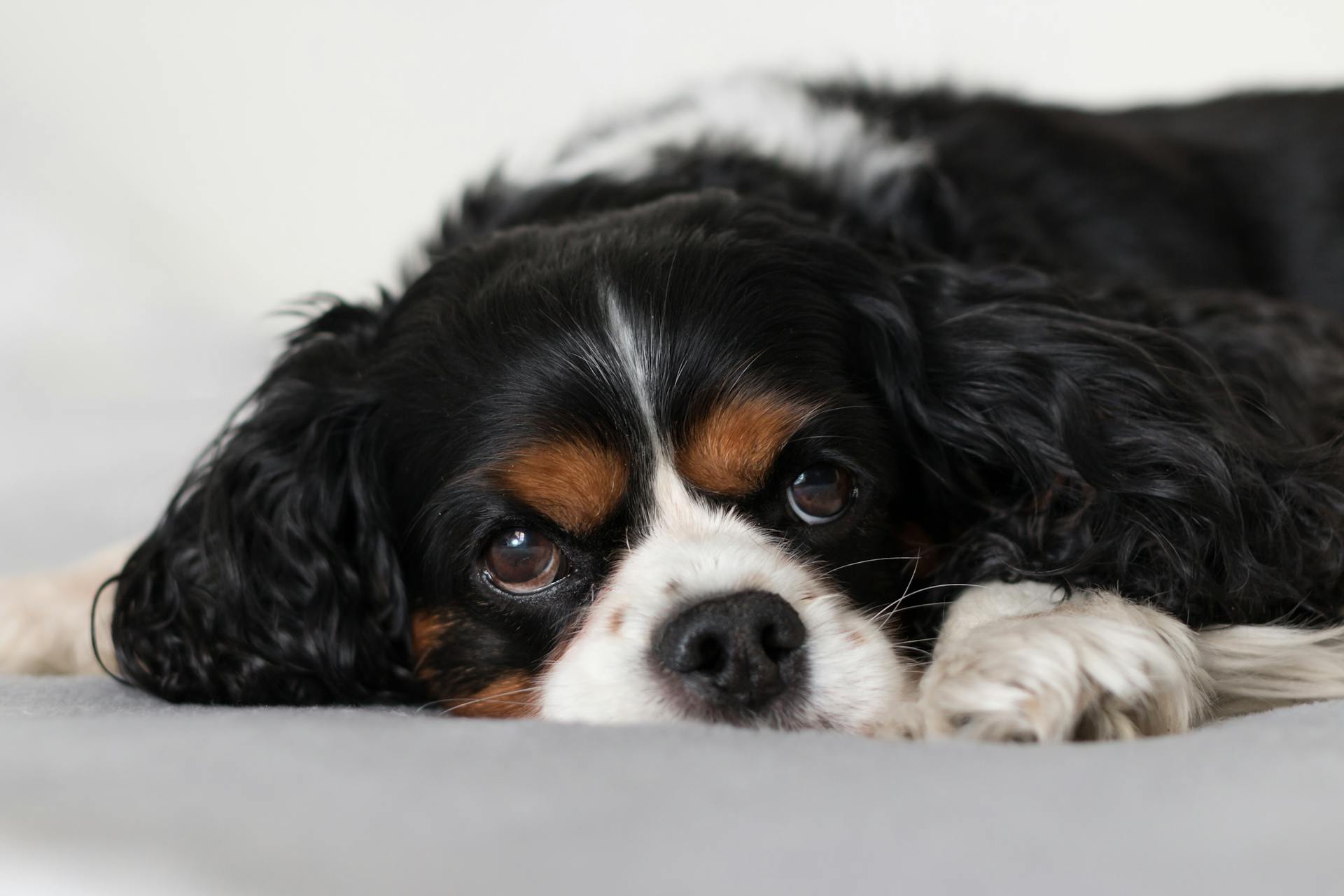
Maltipoos are a popular crossbreed between a Maltese and a Poodle, known for their adorable looks and low-shedding coats. They typically weigh between 4-8 pounds and stand about 8-14 inches tall.
As a full-grown Maltipoo, they can live up to 12-15 years, making them a long-term companion. With proper care, they can thrive and bring joy to their owners.
Full-grown Maltipoos require regular grooming to prevent matting and tangling of their fur. This includes daily brushing and regular trimming to keep their coat looking its best.
What Is a Maltipoo?
A Maltipoo is a crossbreed dog resulting from the combination of a Maltese and a Poodle, typically a Toy or Miniature Poodle. They are often considered a low-shedding breed.
Maltipoos are known for their small size, usually weighing between 4 and 8 pounds and standing about 8 to 14 inches tall at the shoulder.
Origins of the Maltipoo
The Maltipoo is a hybrid breed, specifically a cross between a Maltese and a Poodle, with the Miniature Poodle, Toy Poodle, or Teacup Poodle often being used in breeding.
This hybrid nature means that Maltipoos can inherit different traits from each of their parent breeds, resulting in varying appearances even within the same litter. Their size can range from mini, toy, or teacup, making them one of the small dog breeds.
Since the Maltipoo is not recognized by the American Kennel Club, they do not have a breed standard. This means there are no guidelines for a desired size, coat, or temperament.
Maltipoos are popular due to their combination of desirable traits from both the Maltese and the Poodle breeds. They're typically friendly and affectionate, thriving on human interaction and forming strong bonds with their owners.
Consider reading: Maltipoo Mixed Breeds
Breed Characteristics
Maltipoos are highly adaptable dogs that can thrive in a variety of environments, from apartments to homes with big backyards.
Their intelligence and ease of training make them a great fit for many living situations. They're very active and love to play, so they need regular exercise to keep them happy and healthy.
A full-grown Maltipoo typically features a compact frame, rounded face, and expressive eyes. Their button-like nose and single-layered hair make them a great choice for people with allergies.
Their coats can be medium to long in length and come in a variety of colors, including white, black, brown, cream, gray, and silver. The pure black Maltipoo is considered the rarest.
Personality and Temperament
The Maltipoo is an intelligent and easily adaptable breed, making them a joy to be around.
They are not aggressive or rough pets, and are very gentle and loyal, often forming strong bonds with their owners.
Maltipoos thrive on learning everything about the world, the people in it, and other dogs, which is why proper socialization from an early age is crucial.
Without proper socialization, a Maltipoo may not be properly well-adjusted, so be sure to expose them to various sights, sounds, and smells.
The Maltipoo is also protective of their home and humans, and will bark loudly if they feel a threat is imminent.
However, due to their small stature, their protective abilities are mostly limited to sounding the alarm.
Despite their size, Maltipoos make excellent family pets, as they love to cuddle and play with their owners.
In fact, they are one of the friendliest breeds you can own, making them an ideal choice for families with children or for people who want a low-maintenance pet.
Breed Characteristics
Maltipoos are a delightful blend of the Maltese and Poodle breeds, making them a unique and charming companion.
Their compact frame, rounded face, and expressive eyes are just a few of the features that make them so endearing. Their button-like nose is another distinctive trait that adds to their cuteness.
Maltipoos come in a variety of coat types, including straight and silky, thick and curly, and wavy and wiry. This diversity in coat texture and length requires regular grooming to prevent matting and tangling.
Here are some of the most common Maltipoo coat types:
Maltipoos are known for their low shedding, making them a great choice for individuals with allergies. However, their coat color can change or evolve as they grow older, so it's essential to keep an eye on their coat's development.
In terms of size, Maltipoos typically weigh between 4-20 pounds and stand between 7-14 inches tall. Their lifespan is around 10-13 years, and they're known for their affectionate, gentle, playful, and outgoing temperament.
Overall, Maltipoos are a wonderful breed that make great companions for many families.
Worth a look: Maltipoo Coat Types
Similar Breeds
The Maltipoo's parent breeds, the Maltese and Poodle, are also the foundation for many other popular mixed breeds. These breeds are known as Maltese and Poodle mixes.
Some of the most well-known Maltese and Poodle mixes include Yorkipoos and Doxiepoos. These dogs are often sought after for their low-shedding coats and affectionate nature.
Other breeds that are closely related to the Maltipoo include Poochons and Cavapoos. They share similar characteristics with the Maltipoo, such as being small in size and having a friendly temperament.
Morkies, Maltichons, and Maltipoms are also breeds that are similar to the Maltipoo. They all have a mix of the Maltese and Poodle in their ancestry.
These breeds are great options for people who are looking for a low-maintenance pet that is easy to care for.
Here's an interesting read: Maltese vs Maltipoo
Care and Grooming
Full-grown Maltipoos require regular grooming to maintain their coat health and prevent matting and tangles. This is especially important due to their curly or wavy nature.
Brushing your Maltipoo's coat regularly is a must, ideally daily, to prevent matting and tangles. Regular baths, usually every 3-4 weeks, are also a part of a proper grooming routine.
The right grooming style for your Maltipoo depends on your lifestyle, local climate, and your pet's comfort and health. For example, a short cut like the Puppy Cut may be more suitable for active Maltipoos or those living in warmer climates, as it can help them stay cool.
Here are some popular grooming styles for Maltipoos:
- Teddy Bear Cut: A cute, stuffed animal-like appearance with a uniform length all over the body, usually between 1-2 inches.
- Puppy Cut: A neat and low-maintenance look with short hair all over the body.
- Show Cut: A luxurious look with long hair, typically brushing the floor.
Shedding and Hypoallergenic
The Maltipoo is a great choice for those who want a low-shedding companion, but it's essential to understand that they still leave behind some hair and dander.
As a hypoallergenic breed, the Maltipoo is designed to be more suitable for those with allergies, but reactions can vary from person to person.
Some people may not react to the dog at first, only to become allergic later on.
General Care
The Maltipoo needs a lot of activity, so taking your pup for a walk on a routine basis is a must, even if you live in a small apartment.
A walk isn't the only way to keep your Maltipoo active, playing fetch in the room by rolling a ball and letting your pup chase it down is also a great option.
If you have a busy lifestyle and can't take your pup for a walk, just know that a small dog is capable of big destruction when they're bored and have nothing to do.
You just want to avoid having your Maltipoo get complacent and bored, which can lead to mischief.
Grooming Styles
When choosing a grooming style for your Maltipoo, consider their unique coat, which is a blend of their Poodle and Maltese parents' hair, resulting in a variety of textures and lengths.
The Teddy Bear Cut is a popular option that gives Maltipoos a cute, stuffed animal-like appearance. The hair is trimmed to a uniform length all over the body, usually between 1-2 inches, with a slightly longer length left around the head and ears.
See what others are reading: Short Hair Maltipoo
For active Maltipoos or those living in warmer climates, a short cut like the Puppy Cut may be more suitable, as it can help them stay cool. This style cuts the hair short all over the body for a neat and low-maintenance look.
If you're not worried about regular upkeep and want your Maltipoo to look their most luxurious, you might opt for the Show Cut. This style leaves the hair long, typically brushing the floor, much like the traditional look of a Maltese.
Regardless of the grooming style you choose, regular brushing is essential to prevent matting and tangles due to your Maltipoo's typically curly or wavy nature. This can be done daily, or at least a few times a week.
Here are the popular grooming styles for Maltipoos:
- Teddy Bear Cut: uniform length all over the body, usually between 1-2 inches
- Puppy Cut: short all over the body for a neat and low-maintenance look
- Show Cut: long, typically brushing the floor
Regular grooming is not just about maintaining your Maltipoo's appearance; it's also essential for their overall health care, helping to keep their skin and coat healthy and reducing the risk of infection.
Health and Size
Maltipoos are generally considered a small breed, but their size can vary significantly, especially depending on the size of the Poodle parent.
While some people believe that smaller Maltipoos are healthier, the reality is that very small or teacup-sized dogs can have more health issues, including a higher risk of hypoglycemia, dental problems, and bone fractures due to their fragile size.
A Maltipoo's size is influenced by its immediate Poodle and Maltese parents, as well as its grandparents and great-grandparents, which can introduce variability in size.
Here's a rough guide to predicting your Maltipoo puppy's weight gain: take their weight at 18 weeks and double it. This will give you their expected adult weight, although it's not guaranteed.
Anticipated Growth Rates and Weights of Maltipoo Puppies
Common Health Issues
Maltipoos are prone to certain health issues, but you can reduce the risk by researching their parents' health. This includes getting a clean bill of health from leading authorities that regulate pressing health issues.
The biggest concerns are related to the knees, thyroid, and eyes. You should contact the Orthopedic Foundation of Animals to check the parents' knees and thyroid health. A DNA test of the parents can confirm the health of their eyes and prevent progressive retinal atrophy.
You want to buy from a reputable breeder who doesn't breed the animals until after two years of age at a minimum. This is because the most common health concerns in Maltipoos don't typically develop until they've reached complete maturity.
Worth a look: Maltipoo Health Issues
How Big Do Dogs Get?
A Maltipoo's size can vary significantly depending on its parentage, with weights ranging from 5 to 25 pounds and heights from 6 to 14 inches.
The size of a Maltipoo is influenced not only by its immediate Poodle and Maltese parents but also by the genetic traits passed down from its grandparents and great-grandparents.
A general rule of thumb for predicting a Maltipoo puppy's weight gain is to take their weight at 18 weeks and double it, which will give you their expected adult weight.
See what others are reading: Miniature Maltipoo Size
To get an idea of a Maltipoo's growth rates and weights, here's a table showing the anticipated weights and heights at different ages:
Maltipoos come in three main sizes: Toy, Miniature, and Teacup, with corresponding weight and height ranges.
Growth and Development
Maltipoo puppies grow rapidly in the initial months after birth, with the rate of growth tapering off as they approach adulthood. This early phase is crucial for physical and cognitive development, setting the foundation for their health and behavior as adult dogs.
Maltipoos experience distinct growth phases, each with its unique characteristics, depending on whether they fall into the toy, mini, or teacup size range. Toy Maltipoos experience rapid growth during their first 6 to 8 months, developing in size and personality quickly.
Mini Maltipoos have a similar rapid growth phase, but it might extend slightly longer, up to 10 months, as they have a bit more growing to do compared to their toy counterparts. Nutrition plays a crucial role during this period, especially for teacup Maltipoos, who need a diet rich in protein and essential nutrients to support their rapid development.
You might like: Maltipoo Growth Chart
Teacup Maltipoos usually have the fastest growth spurt due to their small size, with growth notably quick within the first 5 to 6 months. Regular vet check-ups are essential to ensure they are on the right growth track, especially for teacup Maltipoos, who may face more health challenges.
Here's a rough guide to what you can expect from each growth phase:
- Early Puppyhood (0-3 Months): Maltipoo puppies grow quickly, gaining weight and size most rapidly during this period.
- Mid-Puppyhood (3-6 Months): Maltipoos continue to gain weight and grow in height, but not as explosively as in the first few months.
- Late Puppyhood (6-12 Months): Maltipoos' growth rate slows considerably, focusing on consolidation and refinement of motor skills.
The growth rate slows down significantly as Maltipoos approach the end of their first year, with toy and mini Maltipoos reaching their adult size by around 10 to 12 months.
Common Questions
I've had my fair share of Maltipoo owners asking me the same questions over and over, so I thought I'd address some of the most common ones here.
How big do full-grown Maltipoos get? They typically weigh between 4-8 pounds and stand about 8-10 inches tall.
What's the average lifespan of a Maltipoo? They can live for 12-15 years with proper care.
Are Maltipoos good with children? Yes, but it's essential to socialize them well to ensure they're comfortable around kids.
Do Maltipoos require a lot of grooming? They do need regular brushing to prevent matting and tangling, but their low-shedding coat makes them a great choice for those with allergies.
Can Maltipoos be trained easily? Yes, they're highly intelligent and respond well to positive reinforcement training.
Are Maltipoos prone to any specific health issues? They can be susceptible to dental problems and eye issues, so regular check-ups with a vet are crucial.
Frequently Asked Questions
Are Maltipoo good dogs?
Maltipoos are friendly, adaptable, and social dogs that make great companions, but they do require supervision when interacting with other dogs. They're a great choice for families and individuals looking for a low-maintenance, affectionate pet.
How much is a Maltipoo dog worth?
A Maltipoo's price varies from $2000 to over $2500, depending on its size and color, with an average cost of around $2200. The price may be higher or lower depending on factors such as breeder reputation and location.
What do full grown Maltipoos look like?
Full-grown Maltipoos typically retain their puppy-like appearance, with a height range of 8-14 inches. Their size can vary depending on the size of the Poodle parent they inherit traits from.
What is the big version of a Maltipoo?
A Maltipoo typically weighs between 13-17 pounds, with some larger individuals reaching up to 25 pounds.
What is the lifespan of a toy Maltipoo?
A toy Maltipoo's average lifespan is 10-15 years, influenced by factors like diet, exercise, and overall health. Proper care can help your Maltipoo live a long and happy life.
Featured Images: pexels.com


